Curt Simmons was originally a product of Phillies owner Bob Carpenter’s dedication to building a team via home-grown talent during the 1940s. Simmons, a native of Egypt, Pennsylvania, pitched his teams to three straight high-school championships and two American Legion state championships. News of the lefthander’s exploits reached Bob Carpenter’s ears.
In 1947, Carpenter arranged an exhibition game between his Phillies and an all-star team comprised of Lehigh Valley high school players. The game was played in front of 4,500 people at the grand opening of Egypt’s Memorial Park. Simmons struck out 11 Phillies in a game that ended in a 4-4 tie.
So impressed was Carpenter that he gave Simmons a $65,000 bonus to pitch for the Phillies. It was the highest bonus ever paid by the Phillies up to that point in time.
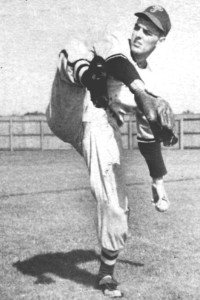 At the age of 18, Simmons was a September call-up at the end of the 1947 season. On September 28, in front of 14,004 fans at Shibe Park, Curt Simmons pitched a 5-hit, 3-1 complete-game victory over the New York Giants for the last-place Phillies.
At the age of 18, Simmons was a September call-up at the end of the 1947 season. On September 28, in front of 14,004 fans at Shibe Park, Curt Simmons pitched a 5-hit, 3-1 complete-game victory over the New York Giants for the last-place Phillies.
Simmons started 31 games the next season at the age of 19 and pitched in 325 games during his 13-year career with the Phillies, posting a winning record of 115-110. His best season was with the 1950 Whiz Kids when he went 17-8. That record could’ve been better had it not been for a call to active duty in early September to serve in the Korean War.
And his career numbers might have been much better had it not been for an unfortunate accident in 1953.
By then, Robin Roberts and Curt Simmons had established themselves as one of the best one-two punches in the National League. They were close friends on and off the field. In fact, they were next-door neighbors in Meadowbrook in the suburbs of Philadelphia.
On June 5, 1953, the Phillies were pennant contenders at 23-16 – in third place and 3½ games out of first. Robin Roberts was 8-3. He would go on to a 23-16 season with a 2.75 ERA. He completed 33 complete games with 5 shutouts and 2 saves. And Curt Simmons was pitching at a similar pace.
Simmons was 7-4 with a 2.94 ERA.
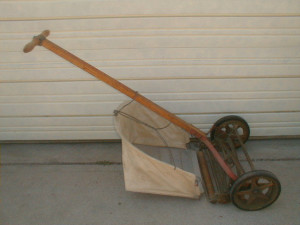 But during the afternoon of June 5, 1953, Curt Simmons decided to cut his lawn with a power mower he just purchased. Big mistake. Power mowers were not commonplace back then. Most people used the old-fashioned push mowers that you rarely see anymore. My dad didn’t buy our first power mower until five years later in 1958.
But during the afternoon of June 5, 1953, Curt Simmons decided to cut his lawn with a power mower he just purchased. Big mistake. Power mowers were not commonplace back then. Most people used the old-fashioned push mowers that you rarely see anymore. My dad didn’t buy our first power mower until five years later in 1958.
So I’m willing to bet that Curt Simmons had no idea how to use his new gadget and underestimated the dangers involved. In any case, he slipped and fell while using his new mower. His left foot flew under the mower and the whirling blade cut his big toe to the bone and severed several other toes.
Robin Roberts heard the commotion from next-door and rushed his friend to the hospital for emergency surgery.
Simmons rehabbed the injury and miraculously returned to pitch on the Fourth of July. But he was never quite the same. The injured toes were on his left foot – his pivot foot or push-off foot. He walked with a limp forever after. His delivery turned from silky smooth into herky-jerky. He lost a couple inches off his fastball and some of the bite from his breaking ball.
He finished the season 16-13, which meant he went just 9-9 after his return from the injury. Before that lawnmower incident, the Phillies were pennant contenders, just 3½ games off the pace. Without him, they were not. The Phillies finished 83-71 and still in third place – but 22 games behind the pennant-winning 105-49 Brooklyn Dodgers.
In 1959, Simmons was plagued with a sore pitching arm for most of the season. In 1960 and in last place, the Phillies decided to undergo a rebuilding program. With the health of Simmons’ arm still a mystery, the Phillies released him on May 17.
Three days later, the St. Louis Cardinals signed him as a free agent and he pitched for the Cards for seven seasons, compiling a record of 69-58. After the Cards, he spent parts of two seasons with the Chicago Cubs and 14 games with the California Angels in 1967.
His career lasted for 20 seasons. His lifetime record was 193-183 with a 3.54 ERA.
In addition to being the official Eagles Outsider for BlameMyFather.com, Barry Bowe is also the author of:
- Born to Be Wild
- 1964 – The Year the Phillies Blew the Pennant
- 12 Best Eagles QBs
- Birth of the Birds
- Soon-to-be-published sexy, police procedural Caribbean Queen
- Soon-to-be-published novel Stosh Wadzinski
- Soon-to-be-published novel Polish Widow

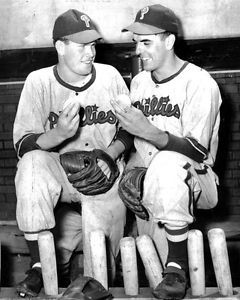

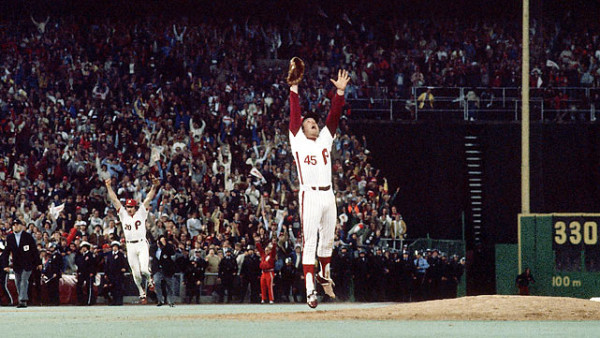
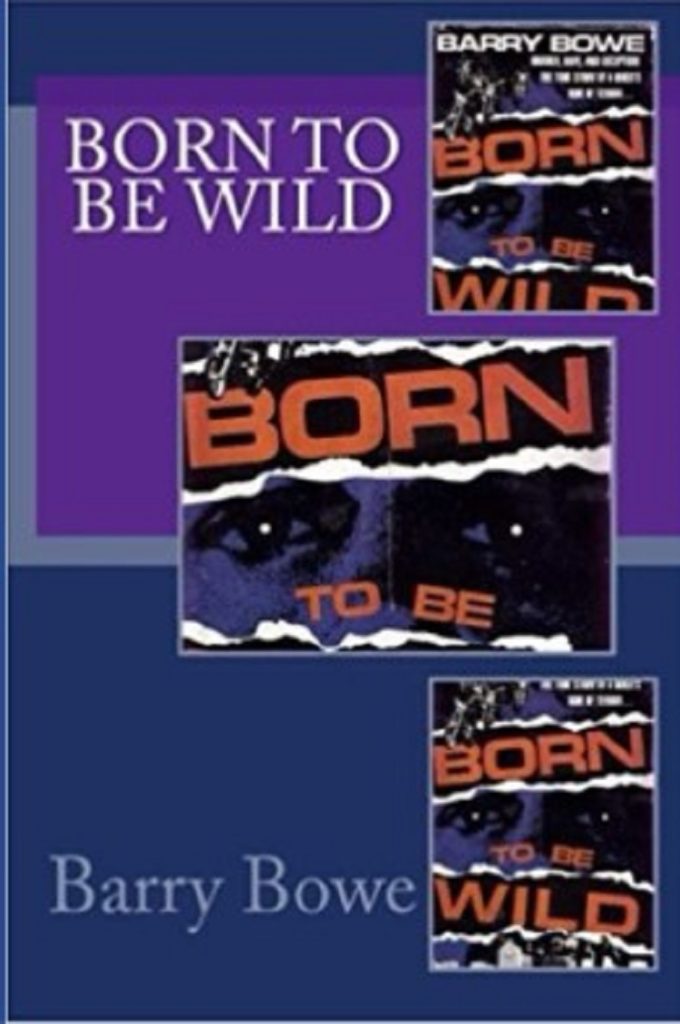


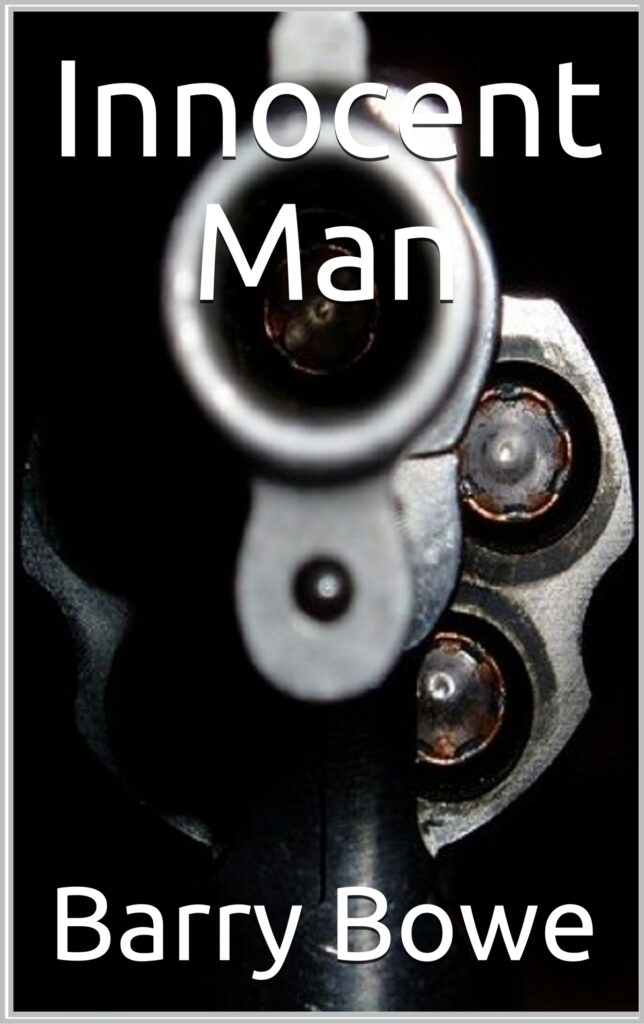

Comments
No Comments